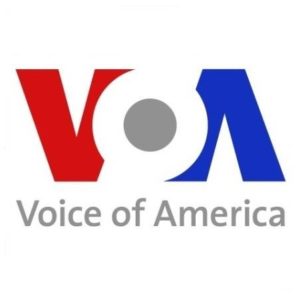BBG Watch Commentary

 In justifying his decision not to send any staff reporters or video journalists to Turkey during the height of anti-government protests, Voice of America (VOA) Director David Ensor reportedly said that VOA’s English Service coverage of Turkey was balanced, objective and responsible. In fact, VOA’s ability to generate original news coverage has been largely crippled by the bureaucracy in charge of U.S. international broadcasting.
In justifying his decision not to send any staff reporters or video journalists to Turkey during the height of anti-government protests, Voice of America (VOA) Director David Ensor reportedly said that VOA’s English Service coverage of Turkey was balanced, objective and responsible. In fact, VOA’s ability to generate original news coverage has been largely crippled by the bureaucracy in charge of U.S. international broadcasting.
One of VOA’s competitors in international news broadcasting, Russia Today, had reporters on the ground in Turkey, as did most other major news organizations almost from the beginning of the recent large demonstrations in Istanbul and in other Turkish cities. The VOA management’s decision not to send a staff reporter to Turkey and to provide sufficient coverage was incomprehensible to many current and former VOA journalists and international broadcasting experts.
Some Russia Today news video reports from Turkey posted on YouTube in early June have accumulated more than a hundred thousands views compared to a few dozen views for VOA English news video reports, also on Turkey but originated from Washington at about the same time.
A Russia Today English news video on Turkey posted two weeks ago had 30,733 views.
A Russia Today English news video on Turkey posted three weeks ago had 156,683 views.
A Voice of America English news video on Turkey posted two weeks ago had 293 views. Search results showed that the most popular VOA English news video from Turkey was posted a week ago and had 1,166 views.
A search could not produce any VOA video reports on Turkish protests filed three weeks ago.
The YouTube search was done on June 23, 2013.
Some other statistics paint an even grimmer picture for Voice of America.
VOA joined YouTube in March 2008. It has 23,673 subscribers and 26,899,189 views.
Russia Today joined YouTube not much earlier, in March 2007. It has 916,189 subscribers and 1,012,508,707 views. That’s over one billion as compared to VOA’s 26 millions. Russia Today is the number one news video producer for YouTube. It has 38 times more YouTube subscribers then VOA and 37 times more views. The YouTube statistics for both broadcasters are as of June 23, 2013.
It looks just as bad for Voice of America English on Facebook. Russia Today Facebook posts have dozens or hundreds of “Likes” and sometimes hundreds of comments. Most VOA entries have only a few “Likes” and even fewer comments.
Russia Today’s English Facebook page has 946,580 total “Likes.”
Voice of America English Facebook page has 350,793 total “Likes.”
English is America’s official language; it is not Russia’s official language.
Even Al Jazeera English beats Voice of America English on Facebook many times over. Again, it’s worth pointing out that English is not the official language of Quatar.
Al Jazeera English Facebook page has 1,574,014 total “Likes” to 350,793 for VOA English (June 23, 2013.)
Critics point out that because of the management’s decision not to send any reporters to Turkey, VOA English news writers were forced to condense wire service reports. After much criticism, VOA finally sent a staff English reporter to Turkey a few days ago. An English stringer had filed a few short reports from Turkey for VOA earlier (without video), but not during initial weeks of the protests when Russia Today and other international news organizations were actively reporting from Turkey.

An analysis of VOA English news output on Turkey showed that it consisted largely of short news times (many less than one minute long) that leaned toward emphasis on official statements by Turkey’s Prime Minister Erdogan. Protesters have criticized local Turkish media for practicing censorship, especially during the initial weeks of the protests when VOA English news provided almost no original coverage. Signs “Coward Media” could be seen on and around Taksim Square in Istanbul. VOA English news did not respond to the challenge; Russia Today, Al Jazeera and other international news organizations did.
Part of the Voice of America did its job, but it had to work under very difficult conditions. The Voice of America Turkish Service covered the protests despite having a very small staff and limited resources. The service has barely survived. Last year, the management wanted to eliminate four journalistic positions in the Turkish Service. The jobs were kept because of protests from members of Congress and media freedom NGOs in response to other major cuts proposed by IBB officials. VOA Turkish delivers its programming through a TV affiliation, Internet and social media. The TV affiliate is TGRT Haber, one of the five major news networks in Turkey.
Coverage of the Turkish protests to the rest of the world in English — the official language of the United States, spoken by over a billion people worldwide –as compared to English-language coverage by Russia Today, Al Jazeera and even China’s CCTV, was vastly substandard, as seen clearly through social media use statistics.
Voice of America – Search of “Turkey Protests” Videos on YouTube – Top Three Results – Most Popular Has
293 views

Russia Today – Search of “Turkey Protests” Videos on YouTube – Top Three Results – Most Popular Has
156,683 views
Dismal results for VOA English coverage of Turkey can also be seen on Facebook.

A comparison of YouTube results for Voice of America and Russia Today English video news reports on Turkey in early June can only be described as devastating for VOA.
While Voice of America (VOA) Director David Ensor claims that VOA English Service news coverage of Turkish protests was “balanced, “objective” and “responsible,” and International Broadcasting Bureau (IBB) Director Richard Lobo insists that “Today we are reaching and engaging audiences like never before,” all comparisons of social media use show quite clearly that the two top executives have failed rather miserably, both in arranging for basic news coverage in English from Turkey, and in social media outreach.
A Russia Today video report from Turkey had 33 times more Facebook “Likes” than a VOA English video report on Turkey from Washington. 597 “Likes” for Russia Today report versus 18 “Likes” for VOA report. Both reports were posted at about the same time.
In fact, 18 Facebook “Likes” was a high number for VOA English reports on Turkey on June 5 and 6, or for any other days in May or June. Many VOA English reports on Turkey had Facebook “Likes” in single digits.
Critics blame International Broadcasting Bureau and its top leadership for crippling VOA English news reporting, eliminating many broadcasts and broadcasting positions, reducing coverage by language services and closing down many of them entirely. IBB Director Richard Lobo, Deputy Director Jeff Trimble and other top officials argue that money is being used to expand digital outreach and social media coverage. Critics counter that the money has been wasted on IBB bureaucracy and contractors while VOA and other U.S.-funded broadcasters see their ability to generate news coverage diminished. IBB, which produces no programs, claims now the largest portion of the budget (about 35%). It is no surprise that top IBB and VOA executives have been consistently rated year after year in the Office of Personnel Management (OPM) Federal Employee Viewpoint Survey as being the worst managers in the federal government and the agency being the worst federal workplace for talented employees, suffering from the lowest employee morale. Instead of reforming the bureaucracy, Director Lobo has been rewarding his top deputies with outstanding performance bonuses of up to $10,000.
Members of the bipartisan Broadcasting Board of Governors (BBG) appear to be unable to fire discredited managers. Director Lobo and the rest IBB’s top bureaucrats are resisting any attempts at reform.
Not all, however, looks hopeless in U.S. international broadcasting thanks to heroic efforts of some of its journalists and mid-level managers. Some of Voice of America language services and surrogate broadcasters, such as Radio Free Asia (RFA) and Radio Free Europe / Radio Liberty (RFE/RL) are providing excellent news coverage to countries without free media.
But if it were not for the efforts of a few effective BBG members — Victor Ashe, Susan Mcue and Michael Meehan — RFE/RL would have also lost its ability to deliver uncensored news to countries like Russia. IBB executives allowed a crippling management crisis at RFE/RL to develop last year until BBG members intervened almost at the last moment and hired a new executive, Kevin Klose, to run the surrogate broadcaster. Prior to that, IBB managers tried for many months to hide from BBG members the extent of the crisis. After BBG Governors took action, Radio Liberty’s coverage of human rights violations, censorship and corruption in Russia has greatly improved, but no such reforms have been undertaken at IBB and VOA.
The same kind of intervention is now needed to save Voice of America. Unfortunately, the BBG board no longer has a quorum to make binding decisions and seems unable for force personnel changes within top ranks of IBB and VOA.
The Committee on Foreign Affairs of the U.S. House of Representatives is holding hearings next Wednesday, June 26, on both Turkey (a subcommittee hearing) and on reforming the Broadcasting Board of Governors.
Chairman Royce Announces Hearing on Reforming Broadcasting Board of Governors
Turkey at a Crossroads: What do the Gezi Park Protests Mean for Democracy in the Region?
Chairman Ed Royce made the following statement about the BBG hearing:
“International broadcasting is a key tool of U.S. diplomacy. Unfortunately, it’s broken. As Secretary Clinton rightly pointed out earlier this year, ‘the BBG is practically defunct in terms of its capacity to be able to tell a message around the world.’ It is time to take a hard look at the BBG and ask if our resources, nearly $750 million annually, are being spent wisely – are we getting what we need from these broadcasting efforts? We aren’t, and it is time for broad reforms; ‘tinkering’ and ‘band-aid’ solutions are not an option, because the stakes are too great.”
Congressman Royce is absolutely right. This Russia Today report, dated June 5, “Turkish activists rail against media for ignoring protests, police brutality” is typical of what Russia Today and other international broadcasters were offering English audiences worldwide in early June and Voice of America English Service did not.
International Broadcasting Bureau Director Richard Lobo, IBB Deputy Director Jeff Trimble, Voice of America Director David Ensor, VOA Executive Editor Steve Redisch and other top IBB and VOA executives should all watch this Russia Today video, as should Broadcasting Board of Governors members and members of Congress.
There is no doubt that many Russia Today programs, especially its commentaries, are biased and anti-American. But some of Russia Today news reporters and news reports are excellent. The coverage of the protests in Turkey was balanced when it did not deal with U.S. interests and foreign policy. These reports were highly popular and effective. They no doubt attracted and continue to attract a large TV and online audience for other Russia Today programs, some of which clearly include pro-Kremlin and anti-American propaganda. VOA English could offer nothing on Turkey to even come close to attracting an audience anywhere near Russia Today’s audience, either online or on satellite TV. Unlike Russia Today, VOA English does not even have a 24/7 satellite television news channel, but it also had no significant online audience for its coverage of Turkey. VOA English radio programs have also been reduced to almost nothing by IBB officials.
Members of Congress should start asking IBB and VOA executives some pointed questions. IBB and VOA officials have destroyed much of Voice of America’s ability to generate original news coverage in English and to be competitive in radio, television and in social media — with money going to feed the vast bureaucracy under the control of IBB.
[aside]Voice of America Russian and Radio Liberty Russian Total Facebook Likes
Radio Liberty Russian –
29,481
Total Likes
Voice of America Russian –
11,644
Total Likes
RL Russian – People Talking About This –
3,087
VOA Russian – People Talking About This –
545
Facebook data as of June 23, 2013.
IBB executives in Washington are trying to get more control over RFE/RL which is doing a much better job in social media outreach than the Voice of America which depends much more heavily on IBB bureaucracy for technical support and management.
Facebook also shows that Radio Liberty Russian Page most popular week was July 22, 2012. It’s the best poof that Radio Liberty still has not fully recovered from the firing of dozens of Russian journalists in September 2012 and other similar decisions, which the former RFE/RL management (since replaced by the three remaining BBG members) had carried with knowledge and possibly encouragement from some IBB officials in Washington. IBB’s involvement in these decisions, which brought strong condemnation from Mikhail Gorbachev, Lyudmila Alexeeva and other famous democratic leaders and human rights activists in Russia, still needs to be fully investigated.
[/aside]The BBG board is now left with only three members: one Republican, former U.S. Ambassador to Poland Victor Ashe, and two Democrats, Susan McCue and Michael Meehan. They are the only members in recent BBG history who attend meetings and insist on accountability and transparency. They managed to save Radio Liberty’s reputation and effectiveness in Russia. But they no longer can hold board meetings because the board lacks a quorum. It is also widely suspected that some of the top IBB executives were responsible for trying to get Ambassador Ashe removed from the BBG board by contacting the White House personnel office.
Ironically, some of the former BBG members who might be testifying next week before the House Foreign Affairs Committee chaired by Congressman Ed Royce (R – CA) and other former BBG members not called to testify had been strong supporters and protectors of IBB bureaucrats. These former members worked closely with IBB executive staff to reduce and in some cases to end Voice of America radio and television broadcasts to Russia, China, Tibet and other countries without free media.
In a few cases, members of Congress intervened and prevented eliminations of broadcasts and services, but many journalistic positions and broadcasts (VOA direct radio and satellite television to Russia) had been terminated. It has also been revealed that companies of some of former BBG members were doing business in Russia and China while they served on the BBG board. Many former BBG members failed to attend BBG meetings. Some depended on the good will of the authoritarian governments of countries like China and Russia to generate profits for their businesses while as BBG members they were expected to promote media freedom, a concept highly annoying to these governments.
The ultimate irony is that these former BBG members and current IBB executives kept justifying cutting broadcasts and news generating staff with claims of promoting “digital engagement” through social media and other digital platforms. Unfortunately, their plan has failed, as demonstrated by YouTube, Facebook and other easily available online social media metrics. They did, however, cripple VOA English news division and some of the language services as well.
The Turkey coverage on the Voice of America English news website, on YouTube and on Facebook is just the latest example of their phenomenal failure. When some VOA English news reports on Turkey get only five Facebook “Likes,” statistics on social media use demonstrate without any doubt how IBB officials wasted U.S. taxpayers money.
Congressman Ed Royce is absolutely right: “it is time for broad reforms; ‘tinkering’ and ‘band-aid’ solutions are not an option, because the stakes are too great.”


